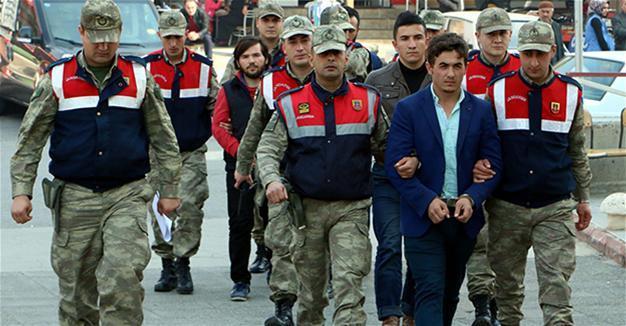Police stage large-scale ‘anti-Gülenist’ operation in Turkish army
Toygun Atilla – ISTANBUL

AA photo
Police have launched a wide-scale operation against alleged members of the Fethullahist Terrorist Organization (FETÖ) in the Turkish Armed Forces (TSK), issuing 142 detention warrants for suspects in 32 provinces across the country.Some 40 people were detained in the operation in the early hours of March 8.
The operation, which was launched with the orders of Istanbul Chief Public Prosecutor’s Office, targeted suspected followers in the army of the U.S.-based Islamic preacher Fethullah Gülen, widely believed to have orchestrated the failed July 15, 2016 coup attempt.
The Istanbul Intelligence and Counter Terrorism Branch launched an investigation into the civilian wing of FETÖ structuring in the TSK six months ago, and it was determined that FETÖ is still linked to commissioned officers in the military.
It was also established that FETÖ members implemented two different working methods in military high schools to advance the group’s interests. Accordingly, students whose families are FETÖ members prepared for exams in houses belonging to the organization, where they memorized stolen military high school entrance exam answers in order to successfully enter the schools.
The second method was based on recruitment, with the Gülenists reaching military high school students who had arrived from provincial Turkey and attempting to recruit them into FETÖ.
The Istanbul Chief Public Prosecutor’s Office found that monitoring of the military high school students was conducted by Gülenists code-named “doctor.” These “doctors” tracked the students’ improvements and private life, and after their graduation more senior FETÖ members stepped in to take over.
A majority of individuals for whom detention warrants have been issued were determined to be users of the smartphone application ByLock, which came to prominence after it emerged that Gülenists used it to communicate.
Moreover, the authorities said an investigation into more than 50 commissioned officers, also determined to have been users of ByLock, is still ongoing.
















